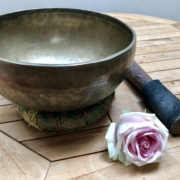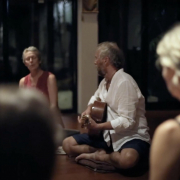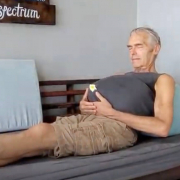 https://samahitaretreat.com/wp-content/uploads/2023/11/IMG_1290-2-scaled.jpg
1920
2560
Kirsten Mia
http://samahitaretreat.com/wp-content/uploads/2024/01/samahita-logo-v2.svg
Kirsten Mia2023-11-21 21:09:402023-11-21 21:09:40Music makes the world go round!
https://samahitaretreat.com/wp-content/uploads/2023/11/IMG_1290-2-scaled.jpg
1920
2560
Kirsten Mia
http://samahitaretreat.com/wp-content/uploads/2024/01/samahita-logo-v2.svg
Kirsten Mia2023-11-21 21:09:402023-11-21 21:09:40Music makes the world go round!Have one for the road
Have one for the road!
In South Africa we have a saying: “Bring jou dop en chop” when you invite people over for a braai (barbeque). It means; bring your alcoholic beverages and meat, usually the host does the salads, sides, rolls, chakalaka (spicy tomato chutney) and all the other goodies. Alcohol is so accepted in our societies, pretty much worldwide, that it’s just kind of expected that most people drink… There are some big players and lots of money involved in the industry so there is, for obvious reasons, not much interest in studying its effects on our long-term health, that would surely put a dent in sales?!
Although in recent years, a lot more studies have been done, showing some interesting results, which point in the direction that alcohol is certainly not good for us in the quantities thought previously acceptable. Regular use has shown to damage pretty much every organ in the body, contributing to heart, liver, kidney disease, diabetes, high blood pressure, obesity, depression, loss of memory, inflammatory diseases, gout, cancer, mood swings, violent behavior, road accident deaths, drug abuse and more! Just a few beers and it slows your reflexes, impairs your judgement, from a distance perspective as well as a moral one. Not to mention the damage to relationships, hormones, finances and overall health and vitality. We brush off the side effects for years, continuing to drink away our troubles, or take the edge off, or treat yourself for getting through the day… Back in the old days when mostly the rich and wealthy aristocrats were the ones drinking everyday (and quite excessively at that!), they were the ones getting gout and liver disease, not the poor peasants who only had a drink on special occasions. Today however the WHO and governments around the world are slowly prioritizing action plans and interventions for the dependance and harmful use of alcohol, as they recognize the related effects on health and social issues, especially on lower income populations.
So what IS alcohol and why is it not really that good for us?
Alcohol is made from ethanol and flavoured water. A grain, fruit or vegetable is fermented (yeast or bacteria reacts with the sugars in the other ingredients) and ethanol and CO2 (bubbles) are produced. It’s then made into the finished alcoholic beverage, where upon consuming, it is rapidly absorbed into the bloodstream via the stomach and small intestine. It is metabolized in the liver by enzymes and affects every organ in the body. It is a central nervous system depressant and harmful use, causes a high burden of disease with significant social and economic consequences. In the US, alcohol is the 3rd leading preventable cause of death. (First is tobacco, second is poor diet and lack of physical activity) Approximately 10% of children in the US under 17 lives with a parent with alcohol abuse syndrome. Worldwide it is responsible for 3.3million deaths per annum (aprox 6%).
Globally, 7 of the top 10 causes of death are due to non-communicable (chronic) disease. (NCD)
An NCD is a disease that is not transmissible directly to others and are considered mostly preventable due to modifiable risk factors, mainly lifestyle, a person’s background and environment. The WHO has identified 5 important risk factors to NCD’s in the top 10 leading causes of death: Raised blood pressure, cholesterol, tobacco use, alcohol consumption and being overweight. Other factors include economic and social conditions. It is estimated that if the primary risk factors were eliminated, that would reduce 80% of the cases of heart disease, stroke and type 2 diabetes, and 40% of cancers. Interventions and efforts focused on better diet and increased physical activity have been shown to control the prevalence of NCD’s and can reduce the burden of disease worldwide.
So, is alcohol a risk factor in your life? Do you drink excessively? Heavy drinking is having above 8 drinks a week for women and 15 drinks a week for men.
Here are some signs that your drinking habits are becoming a problem:
- Binge or heavy drinking
- You continue to drink even when you know it’s causing problems in your life
- Drinking while pregnant
- Underage drinking
- Needing to drink more to feel the effects
- Withdrawal symptoms if you try to quit
- It’s affecting your relationships
- Family and friends having expressed concern about your drinking habits
- You drive after drinking too much
- Your drinking is causing health problems
While the harmful effects of alcohol abuse can be disconcerting, help and treatment is within reach! If you or someone close to you is finding it difficult to get a grip on their drinking habits, seek professional advice from a doctor, therapist or support group. Create a personalized action plan to address the issues that may be contributing to heavy drinking and ask for HELP from friends and family to support you. A longer, healthier, happier and more fulfilling life awaits if you can reduce the amount of alcohol you’re consuming. Any positive changes you make, over time all contribute to improved health and wellbeing so make a start, it all adds up. Cheers to healthy living!
Original Blog written by Kirsten-Mia Hickey for The Roaming Yogi.
References:
https://www.niaaa.nih.gov/sites/default/files/publications/NIAAA_Alcohol_Facts_and_Stats_2.pdf
https://www.who.int/news-room/fact-sheets/detail/alcohol
https://www.who.int/news-room/fact-sheets/detail/the-top-10-causes-of-death
https://en.wikipedia.org/wiki/Long-term_effects_of_alcohol
https://en.wikipedia.org/wiki/Non-communicable_disease
https://joinmonument.com/resources/long-term-effects-of-alcohol-on-the-body/
More from the Samahita Blog







